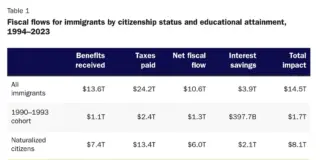
The US national obesity crisis continues to grow, with a national average obesity rate of 31% among adults, according to a report published Thursday by Trust for America’s Health.
The report, based on data from the US Centers for Disease Control and Prevention’s Behavioral Risk Factor Surveillance System, found that nine US states had obesity rates at or above 35% in 2018. In 2012, no US states had adult obesity rates higher than 35%.
West Virginia and Mississippi tied for the highest obesity rate at 39.5% last year, followed by Arkansas (37.1%), Louisiana (36.8%), Kentucky (36.6%), Alabama (36.2%), Iowa (35.3%), North Dakota (35.1%) and Missouri (35%). Colorado had the lowest overall obesity rate, with only 23% of the population considered obese last year.
The study also found that 33 US states saw statistically significant increases in adult obesity rates between 2013 and 2018. Statistical significance refers to the likelihood that “a relationship between two or more variables is caused by something other than chance,” according to Investopedia.com.
“These latest data shout that our national obesity crisis is getting worse,” Trust for America’s Health CEO John Auerbach is quoted as saying. “They tell us that almost 50 years into the upward curve of obesity rates, we haven’t yet found the right mix of programs to stop the epidemic. Isolated programs and calls for life-style changes aren’t enough. Instead, our report highlights the fundamental changes that are needed in the social and economic conditions that make it challenging for people to eat healthy foods and get sufficient exercise.”
The study also found that certain demographic populations have higher obesity rates. For example, 47% of Latinos in the US were considered obese in 2015 and 2016, compared to 46.8% of blacks. On the other hand, 37.9% of whites in the US were obese in 2015 and 2016, while 12.7% of Asians were obese during those years.
“Broader equity issues – like poverty and institutional racism – and community context shape daily life and available choices around healthy food, physical activity, education, jobs, financial security, etc. (together often called ‘social determinants of health’), which systematically affect people’s weight and health,” the report explains.
According to the study, individuals identified as obese are at a “significantly higher risk” for diseases such as diabetes, hypertension and heart disease. Additionally, they are more likely to experience knee and hip problems, which can lead to chronic pain. Obesity also increases US national health care spending by around $149 million every year, according to Trust for America’s Health.
The study suggests that local governments can combat the issue by continuing to tax sugary drinks to deter people from buying unhealthy, high-calorie beverages. In addition, the report pointed out the obesity rates for children enrolled in the Special Supplemental Nutrition Program for Women, Infants and Children saw a decline as a result of participants being provided with coupons that allowed them to be provided with nutrient-rich foods. Those rates decreased from 15.9% in 2010 to 13.9% in 2016.
Source: https://sputniknews.com
Disclaimer: We at Prepare for Change (PFC) bring you information that is not offered by the mainstream news, and therefore may seem controversial. The opinions, views, statements, and/or information we present are not necessarily promoted, endorsed, espoused, or agreed to by Prepare for Change, its leadership Council, members, those who work with PFC, or those who read its content. However, they are hopefully provocative. Please use discernment! Use logical thinking, your own intuition and your own connection with Source, Spirit and Natural Laws to help you determine what is true and what is not. By sharing information and seeding dialogue, it is our goal to raise consciousness and awareness of higher truths to free us from enslavement of the matrix in this material realm.
 EN
EN FR
FR

























